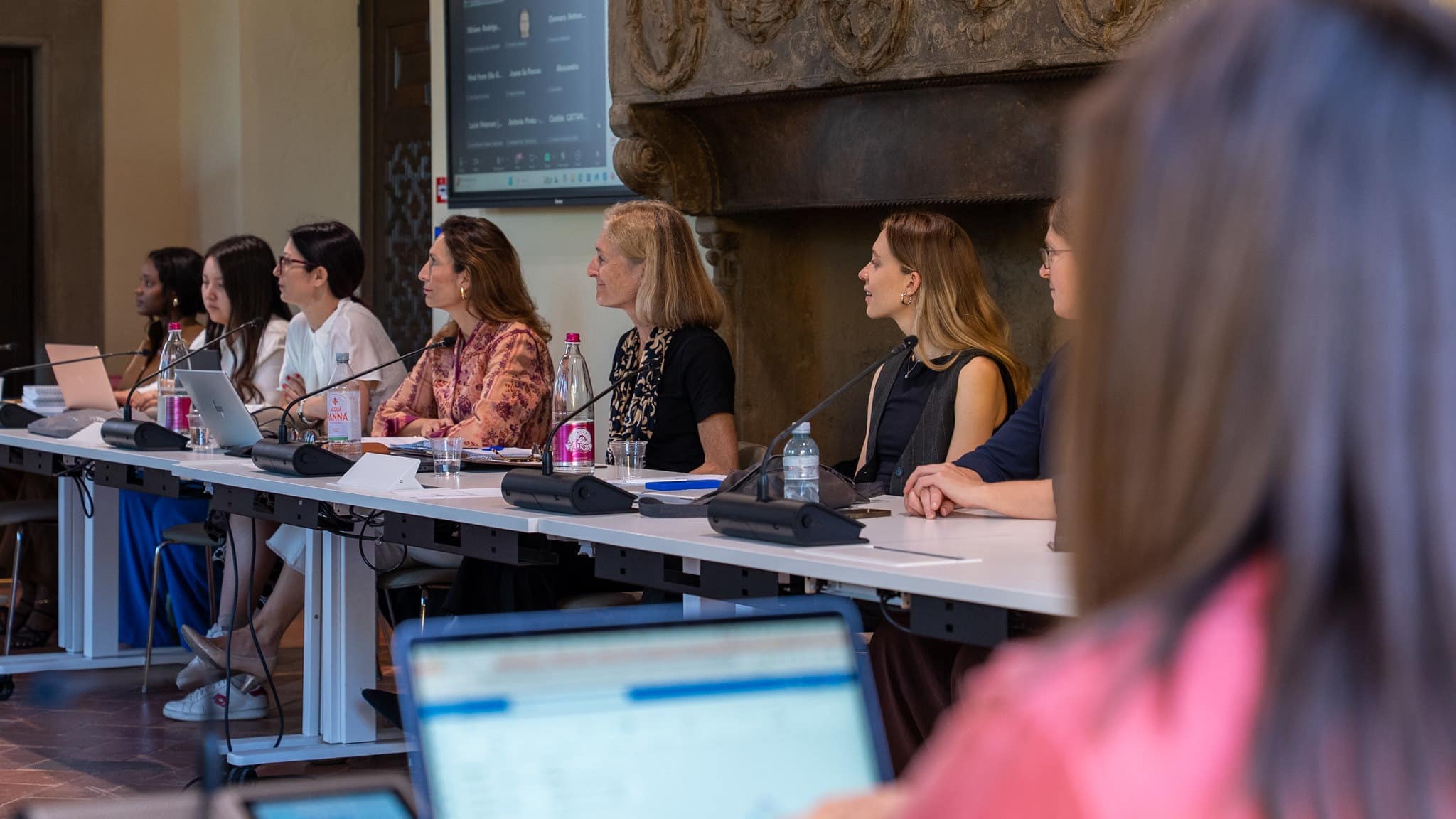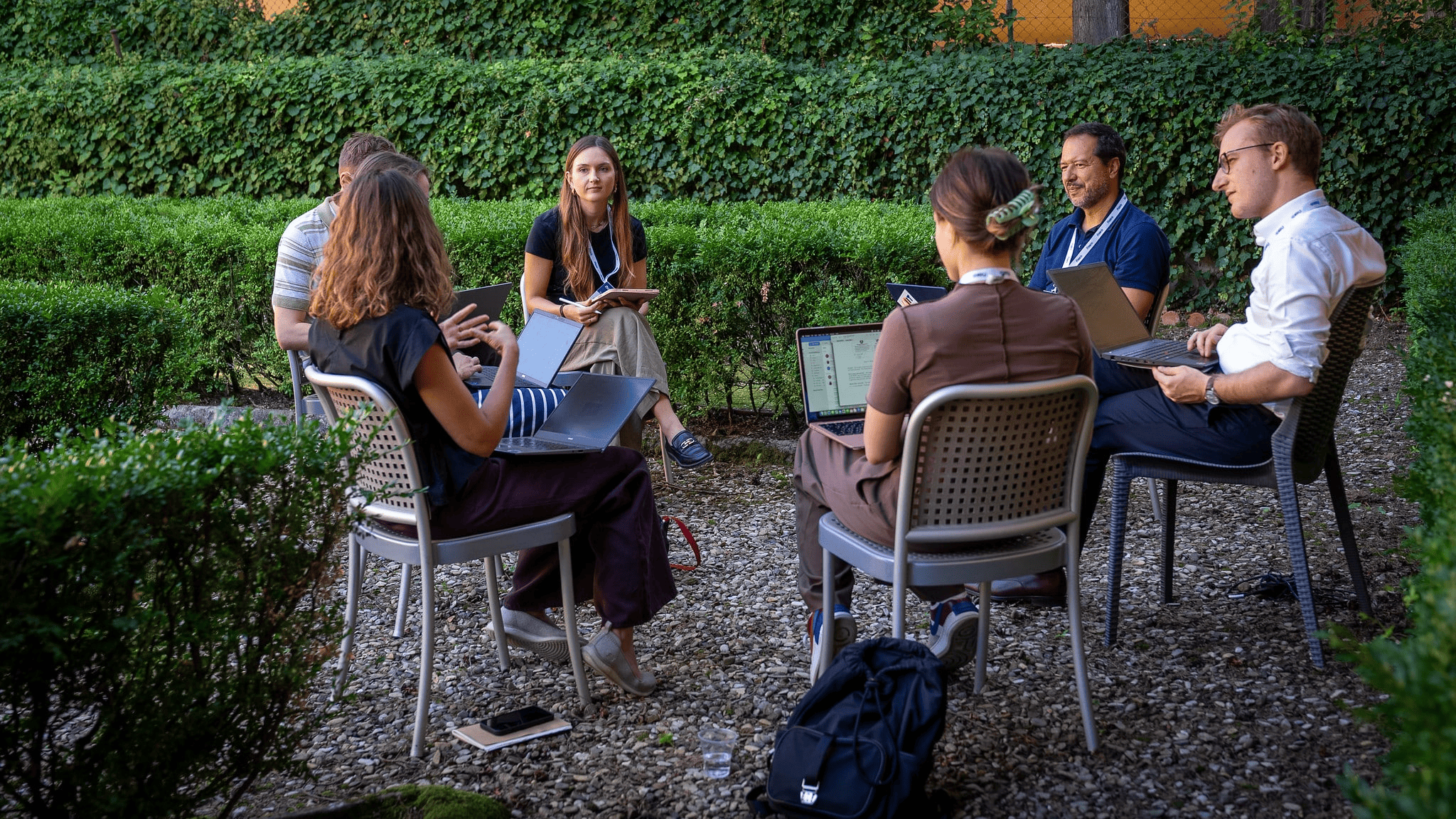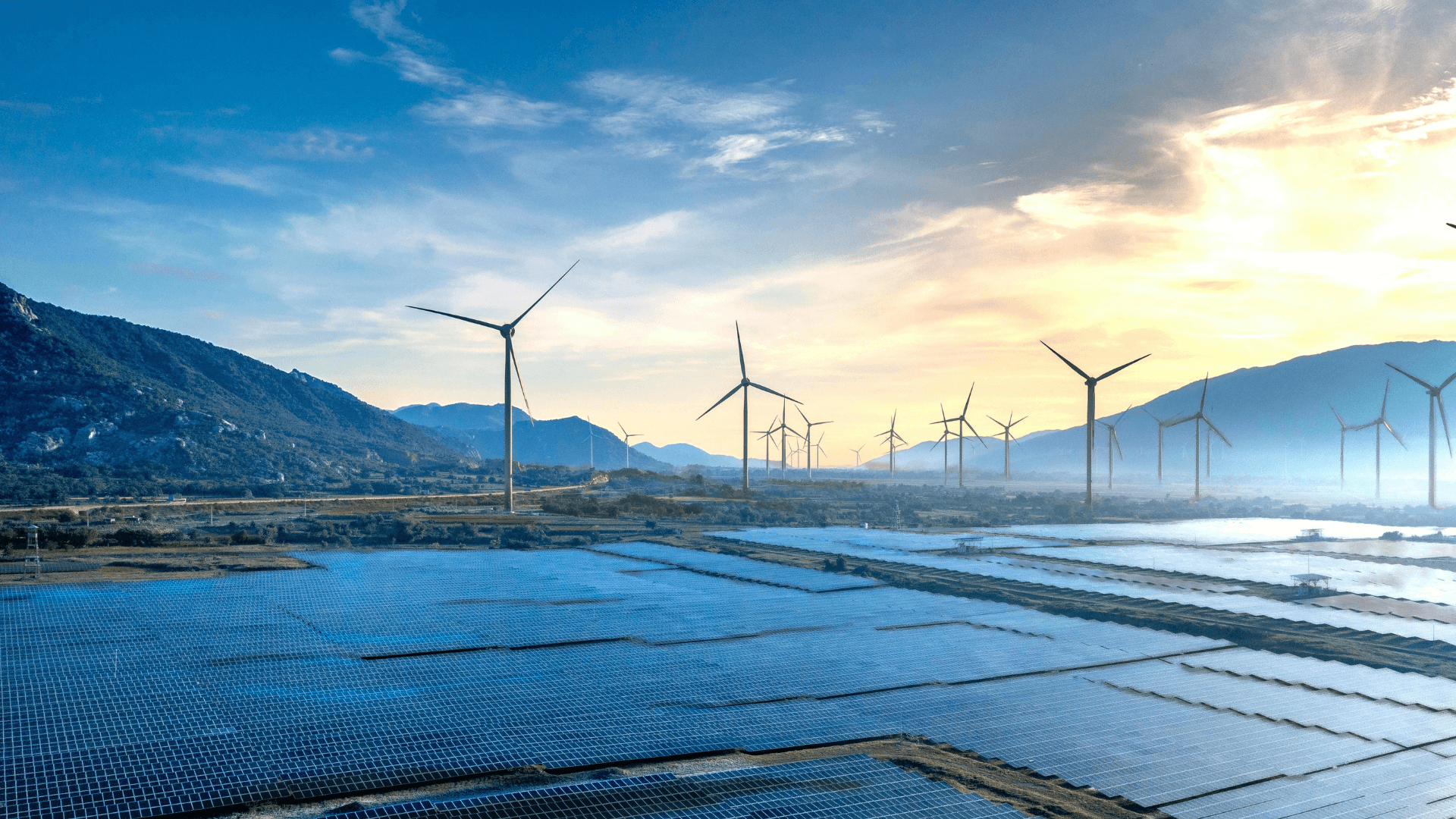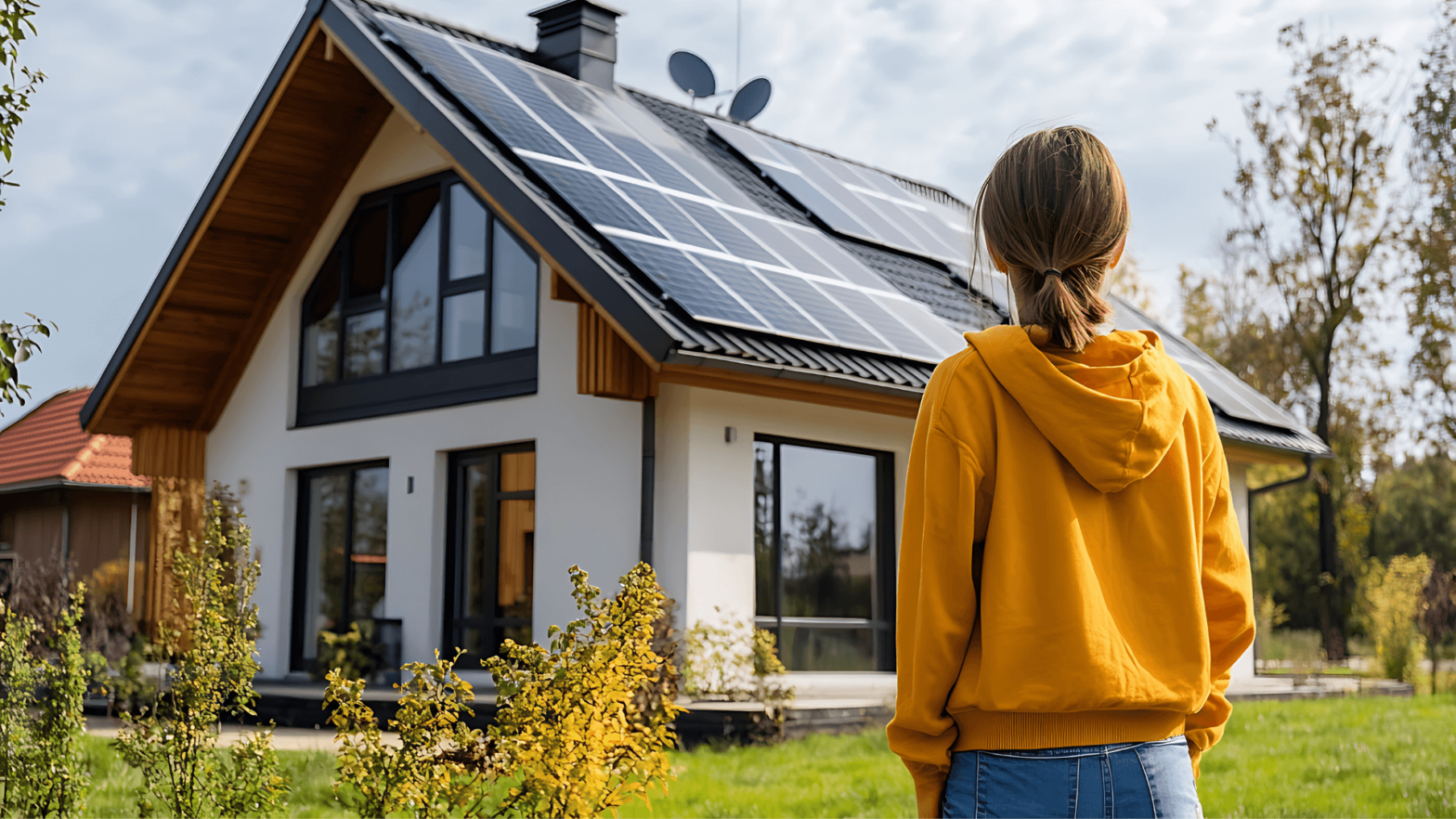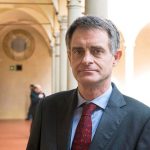Energy prosumption: barriers and solutions
Highlights from the debate: Electricity self-consumption for the energy transition

On 1 February 2023, a #FSRDebate discussed the state of the art in the development of prosumption and aimed at identifying any remaining barriers and the ways to overcome them.
Introduction
The Debate was opened by Ilaria Conti (FSR) who welcome all speakers and participants and introduced her co-host Alberto Pototschnig (FSR). In his introduction to the Debate, Alberto Pototschnig recalled that the energy transition, to achieve the ambitious energy and climate goals to which the European Union has committed, requires a significant increase in the share of renewables in final energy consumption over the next years. As it has been the case so far, the electricity sector is expected to contribute more than proportionally to the overall target, with renewables expected to cover 70% or more of final electricity consumption by 2030. The greater penetration of renewables in the electricity generation mix will be achieved partly with large-scale installations – for example, large offshore wind parks –, but a substantial contribution is also expected to come from distributed, small-scale installations. These will include installations at end-consumers’ premises. In such cases, consumers turn into ‘prosumers’, i.e. consumers which produce part or all of the electricity they consume, and possibly sell the excess electricity.
The current EU legal framework provides specific rights and obligations for prosumers, as active consumers, in particular in Article 15 of the Electricity Directive.
After this introduction, Alberto Pototschnig indicated that, for the first time in the #FSRDebate series, the audience will be invited to participate in polls twice, at the beginning of the event and after the opening presentations and the initial statements of the panellists. Therefore, he launched the first round of polls, which delivered the results shown in the following tables.
| In your view, what role will self-consumption/’prosumption’ play in the energy transition towards a decarbonised energy sector? | ||
| A game-changing role | 26% | |
| An important role | 56% | |
| One of many developments | 18% | |
| No views | 0% | |
Almost a third of the respondents indicated that they consider self-consumption/’prosumption’ mostly to deliver financial benefit, while a slightly lower share indicated enhance security of supply as the main benefit.
| In your views, what is the main type of barriers hampering the development of self-consumption/’prosumption’ in Europe? | ||
| Regulatory barriers | 47% | |
| Financial barriers | 16% | |
| Technical barriers | 7% | |
| Social barriers | 4% | |
| Lack of knowledge and expertise | 22% | |
| No views | 4% | |
Almost half of the respondents indicated that they consider regulatory barriers to be the ones mostly hampering the development of self-consumption/’prosumption’ in Europe.
Opening Presentations
After the initial polling, Alberto Pototschnig invited the two speakers in the opening part, Ms Adela Tesarova (Head of Unit, Consumers, Local Initiatives, Just Transition, DG ENER, European Commission) and Mr Javier Esparrago (Energy and Environment expert, European Environment Agency), to deliver their presentations.
Ms Tesarova started by referring to the main characteristics of the future energy system: decarbonised, integrated, decentralised and consumer centred, digitalised, liberalised and competitive. She then presented the scope for empowering consumers, in terms of helping consumers access more affordable prices, enabling them to become actors of the green energy transition, speeding up deployment of renewables, increasing public acceptance of new projects, mobilising private capital for the energy transition and increasing flexibility of the market. Consumer empowerment might take different forms: individual or jointly-acting active consumers and energy communities, and Ms Tesarova spelt out the differences between the different forms. She also referred to energy sharing models, the risks they involved and the possible measures to mitigate such risks. Ms Tesarova concluded her presentation by illustrating the objectives and actions under the EU Solar Strategy and the available EU Support Frameworks.
In his presentation, Mr Esparrago referred to a recent report by the EEA on Energy Prosumers in Europe and a shorter paper on Energy prosumers and cities. The first step in the work on these deliverables was defining what a prosumer is and the different forms of prosumption. A prosumer is defined widely as an entity representing citizens which is active in the energy system, by either consuming and producing or only producing renewable-based power or heat, or offering energy services such as demand flexibility or storage, or being involved in energy communities, or owning and operating grid infrastructure. There are many types of prosumers: individual households, SMEs, collective consumers (at the building level or as energy communities). The EEA tried to quantify the number of consumers active in Europe, but no reliable data is available. The potential for prosumption is also still quite uncertain. Estimates by the JRC seem to indicate that up to a quarter of final consumption could technically be covered by roof-top solar panels. Other estimates put prosumption to up to 70% of final consumption. But these are technical potentials, without considering their economic viability. The benefits of prosumption – e.g. environmental benefits, land-use reduction, social benefits – as well as the barriers to its expansion also depend on the different models. Mr Esparrago then compared the benefits of prosumption vis-à-vis utility-scale installations, concluding that the future energy system will consists of both prosumers and large-scale systems in a more decentralised and integrated smart grid. With respect to the current energy crisis, he referred to prosumption as a way of protecting consumers from price spikes.
Panel Discussion
After the introductory presentations, Ilaria Conti presented the panellists: Alessandro De Cristofaro (EnelX), Edwin Edelenbos (Netbeheer Nederland) and Natalie McCoy (ERSE and CEER).
Mr De Cristofaro started by reviewing the technical and commercial solutions for prosumers. He then referred to the experience in Italy. In 2020, there were approximately one million prosumer installations connected to the system, with an installed capacity of 10GW and an annual production of 5TWh. He continued by illustrating the regulatory regime in Italy for the different types of prosumption, focussing on energy communities and shared energy. Regarding future developments, Mr De Cristofaro presented some forecasts envisaging 1GW annual increases in installed prosumption capacity to 2026. He also outlined the expected future regulatory milestones. He concluded by referring to regulatory, technical and financial aspects of the different types of prosumption – individual prosumers and energy communities.
Mr Edelenbos brought to the debate additional questions. Would self-consumption and energy sharing have an effect, possibly a disturbing effect, on the wholesale market? Would they have an impact on the position of the suppliers and their balance responsibility? He stressed the difference between collective self-consumption and energy sharing. Self-consumption should be balance-neutral from a system perspective. In this case, the impact on the supplier is the same as what we are used to when consumers switch their appliances on and off. However new regulatory, technical and governance arrangements are required. In particular, the suppliers need to be informed of which of their customers engage in energy sharing and what their appliances are. On the other hand, energy sharing requires involvement in the wholesale market and therefore it needs to be supported by a balance responsible party.
Ms McCoy started by referring to CEER analysis of the implications of the provision on active consumers in the Clean Energy Package. She indicated that self-consumption involves a number of detailed arrangements which appear only at close examination. The administrative procedures and licencing seem to be the most frequent barriers for self-consumption, especially of a collective form. She also referred to the obligations of suppliers and the consumer rights in the context of self-consumption. The use of the public grid also raises questions regarding the appropriate allocation of costs. Regulators would have closely to look at these aspects to ensure that self-consumption can run smoothly in the electricity system.
Polls
After the panellists’ opening remarks, Alberto Pototschnig run the second round of poll questions to the audience, which delivered the results presented in the following tables (which also contains, to facilitate the comparison, the results of the first round of polls).
| In your view, what role will self-consumption/’prosumption’ play in the energy transition towards a decarbonized energy sector? | ||
| Initial poll | Subsequent poll | |
| A game-changing role | 26% | 25% |
| An important role | 56% | 50% |
| One of many developments | 18% | 25% |
| No views | 0% | 0% |
| Self-consumption/’prosumption’ is credited with delivering benefits in many areas. In your views, which is the most important area in which self-consumption/’prosumption’ could deliver benefits? | ||
| Initial poll | Subsequent poll | |
| Environmental benefits | 22% | 28% |
| Enhanced security of supply | 29% | 19% |
| Social benefits | 18% | 21% |
| Financial benefits | 31% | 30% |
| No views | 0% | 2% |
| In your views, what is the main type of barriers hampering the development of self-consumption/’prosumption’ in Europe? | ||
| Initial poll | Subsequent poll | |
| Regulatory barriers | 47% | 48% |
| Financial barriers | 16% | 13% |
| Technical barriers | 7% | 6^ |
| Social barriers | 4% | 8% |
| Lack of knowledge and expertise | 22% | 23% |
| No views | 4% | 2% |
The subsequent polls confirmed the results of the initial polls, with the exception of the indications of the main benefits, where respondents reduced the importance of the benefits in terms of enhanced security of supply in favour of environmental and, to a lesser extent, social benefits.
Q&A and Conclusion
A lively Q&A session ensued, at the end of which Ilaria Conti and Alberto Pototschnig thanked all speakers and audience members for their contribution to this debate.
Don’t miss any update on this topic
Sign up for free and access the latest publications and insights



